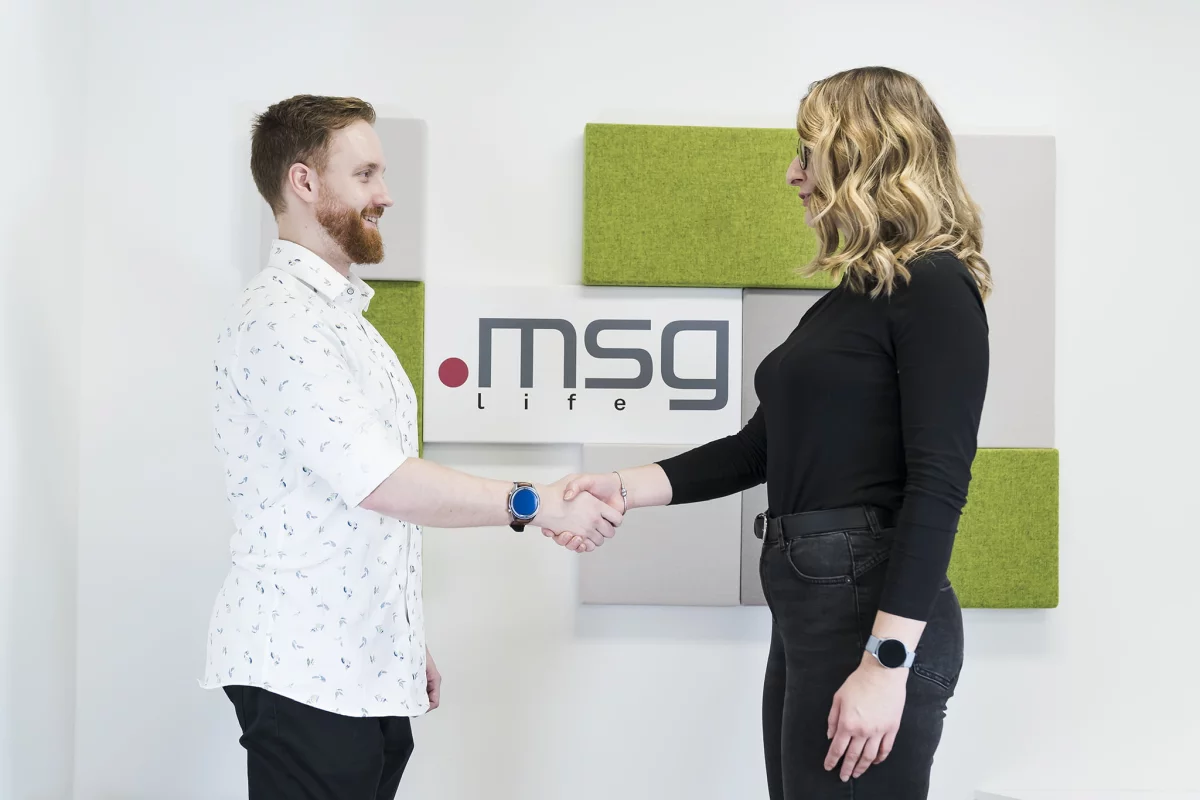Staff selection methods you may encounter
Staff selection methods vary depending on the company and its human resources department. However, most companies routinely use a few proven methods that are reliable and effective. Which one are they and what is their characteristic?

In the article you will learn:
Who is in charge of staff selection?
Before we mention the different methods of selecting employees, it is important to know who is in charge of the whole process and who you may encounter.
The likelihood of being asked questions by the owner in an interview at a large company is very low. In companies with hundreds or thousands of employees, where job interviews are held regularly, special staff is dedicated to this work. These are HR specialists from the HR department.
HR professionals have the experience and often the training to be able to determine your feelings based on small details such as gesticulation. They are thus invaluable helpers for employers.
The way HR professionals work varies. However, they usually use a number of proven methods that, if you’ve done any interviews, you’re at least partially familiar with. They use them to find out if you are the ideal candidate for the job and if you deserve the chance.
What staff selection methods we know?
Recruitment is a complex and complicated process that should be handled by a professional with experience. Such an expert knows what to look for when making a choice.
Most companies have an HR department, or human resources department, for finding and hiring new employees. The department uses a variety of methods to determine which job applicants are truly suitable and should be given a chance.
Several methods and techniques are used to select employees. In most cases, these methods are combined with each other to give recruiters the best possible results. Which methods are they and what should you prepare for if you are looking for a new job and going for a traditional or online interview?
Method no. 1: Studying the CV and cover letter
Your CV and, in some cases, your cover letter are the tools you use to respond to a job offer, they are also your business card and a tool to find a job. You can use them to introduce yourself to recruiters and present your education, qualities and also your acquired hard and soft skills from your previous working career.
Be careful when creating your CV. It’s not just your strengths that recruiters are interested in. In addition, they also look at the overall execution of the document. This means its editing, writing style, stylistics, grammar, text alignment, formatting, typos, etc.
You may think that these details are not important for your work, but why should you know stylistics if you are, for example, a Java programmer? The answer is quite simple. These basic qualities should be possessed by absolutely everyone, at least at a basic level, because they affect many other areas.
For example, a CV without typos and grammatical errors shows recruiters that you pay attention to detail and strive to get the best results.
But that’s not all in terms of details. Recruiters also watch your communication style, especially if it’s relevant to your job. For example, a salesperson or sales representative should be able to express themselves properly, should not use foul language or vulgarisms, and their speech should be pleasant and calm. This is the only way to convince a client to cooperate or a customer to buy a good or service.
Don’t forget the little things on your CV that may look innocent but are important. This mainly includes information on hobbies and free time activities. For example, if you are involved in team sports, HR staff may assume that you will be good at teamwork.
The same rules apply to the cover letter. At the same time, it is crucial to remember that you should invest enough time in writing it. Recruiters have a lot of experience with universal letters during the recruitment process. They know that candidates often want to simplify their response to an offer with a text they have downloaded from the internet, which is not positive in their eyes.
Make your cover letter count. Try to write it in an original way, but in such a way that it doesn’t feel inappropriate, isn’t too long and doesn’t contain unnecessary information that HR won’t be interested in. Try to answer questions like:
- Why are you the ideal candidate?
- What achievements have you made in your career?
- How do you stand out compared to other applicants?
Method no. 2: Verifying CV information
Applicants may include more information on their CV. To make sure it is really true, recruiters often check them. So don’t make things up as you write your CV or cover letter.
This applies not only to information that can be verified, such as education or previous work experience, but also to information that HR cannot 100% verify. This includes, for example, your hobbies or personality.
While qualities such as stress management or the ability to work under pressure sound great and can help you get a job, if you have to show them in practice and you don’t have them, there’ll be a problem.
Lying on a CV or cover letter is not the best way to get a desirable job position. Recruiters will find out that you’re not telling the truth, often at the interview. They just need a few well-asked questions.

Method no. 3: Interview with the candidate
Recruitment cannot be done without an interview. Those who have impressed the recruiters and meet their requirements are invited to attend.
The length of the interview varies and usually lasts between 30 and 60 minutes. The interview is conducted by an HR professional who asks thoughtful questions to get to know the candidate. It verifies the information gathered from the CV or cover letter to see if he or she is really suitable for the job.
Interview questions from recruiters tend to be very similar within the same industry. But sometimes they can take you by surprise and you answer with something what you would not have imagined. That’s why it’s good to know how to prepare for a job interview and what to expect. On the topic of interviews, you can also read our article Preparing for an interview using ChatGTP.
Preparing for the interview is also important because the recruiter will not be satisfied with superficial and general answers. On the contrary, they will expect you to respond based on your experience and the qualities you have presented in your CV.
The right self-presentation at an interview will help you impress HR staff and leave a good impression. This will make it more likely that you will be invited to the second round of the employee selection interview.
Method no. 4: Observation of non-verbal communication
Recruiters are not only interested in what you say, but also in your face, what you do with your hands or your body posture. These little details can tell a lot more about you than you think.
If you don’t want to make a bad impression, avoid exaggerated gesticulation, hair grabbing or foot tapping. You’d also do well if you study different movements or stances. For example, adjusting your hair or looking at the ground can indicate nervousness. A trembling voice or averting your eyes can symbolise lying.
Employee selection – Psychometric test and other methods of recruiters
When selecting new employees, recruiters also use various other, more practical methods. These include, for example, the creation of model situations or personality and psychometric tests. They measure your ability to speak up for yourself, help others, suggest solutions and so on.

Employee selection process at msg life Slovakia – how does it work?
Employee selection and HR management is different in every company. At msg life Slovakia, this process consists of several steps that are specifically tailored to our HR strategy and company culture.
Send us your CV
The very first step is up to you. If you are interested in a job offer, please respond by sending your CV. Simply attach it as an attachment to the contact form. If you’re interested in how to write a CV, read our article Skills and abilities on a CV.
What else should I attach besides my CV? Generally, nothing else is needed. However, if you have a cover letter, feel free to send that as well. We’d love to find out more interesting information about you. However, we recommend you not to stretch it unnecessarily, so it won’t be tiring. Ideally, you’ll write a brief text introducing yourself and telling us why you’re the best candidate for the job.
We will then confirm receipt of your application by an automated email that will arrive in your inbox. That way, you’ll be sure your request has actually been sent and we’ll take a look at it shortly.
If we are interested in you, we will contact you
Once we receive your CV, we’ll go through it and see if you meet our requirements. If yes, we’ll give you a call, ask a few follow-up questions and set up an interview.
Have patience in this step and give us some time. We want to go through your CV thoroughly and consider everything carefully, so you may have to wait a few days to get a response. But don’t worry, we won’t forget you.
We’ll invite you for an interview
By phone or email, we agree on the date and format of the meeting, i.e. whether we will meet in person or online.
Then we’ll talk about other details, which vary depending on which job you’re interested in.
Your job at this step is to let them know if you can make the meeting. All you need is a short email stating, for example, “I confirm my attendance at the interview”.
Meeting – motivating employees in the company
We will meet and talk on the agreed date. You tell us more about yourself and your experience. We will introduce you to the company’s work processes, employee evaluation and employee benefits. We will also tell you more about the motivation of the employees in the company, the salary conditions and many other details.
The interview is the perfect time for your questions too. If something is not clear, don’t hesitate to ask. Our recruiters will be happy to explain everything to you.
We’ll let you know how we decided
Feedback after the interview is a matter of course with us. We will always tell you how we decided. If we are interested in you and you are a suitable candidate, we will be happy to invite you to the next round of the selection process.
We’ll give you constructive feedback at every stage of the selection process. At the same time, we appreciate your effort and will do our best to make this experience move your career forward.
Congratulations.
If you’ve made it this far, a contract is on the way. To make sure everything goes smoothly and as it should, we’ll give you a call to arrange a start date and other details.
Get your dream job too
Employee selection methods are thought out so that recruiters can find out who is best suited for the chosen job. If you’ve found your dream job and want to make sure you get it, check out the different methods. In addition, find out what questions recruiters ask most often and practice answering them.
Prepare for a job interview like a professional. Take advantage of all our tips and compete for your dream job.
